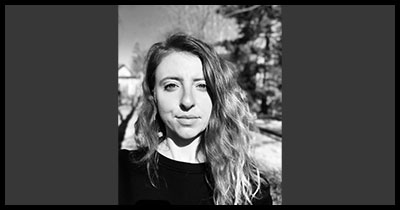A New Chabraja Center Postdoctoral Fellowship

Ruby Daily writes about her experience as CCHS postdoctoral fellow/Assistant Editor at Public Books.
A couple years ago, the Chabraja Center for Historical Studies created a new postdoctoral fellowship. The recipient serves a one- or two-year stint as an Assistant Editor for the online magazine Public Books. The fellowship’s purpose is to give our department’s Ph.D. recipients the opportunity to explore careers in, and the mechanics of, magazine publishing, even as they still consider opportunities in academia. Our first recipient of this fellowship was Ruby Ray Daily, who writes about her experience here.
I had never worked in publishing prior to the Public Books postdoc. And, indeed, one of benefits of the postdoc is learning that publishing is like a perpetual motion machine slash wind tunnel, with all the moving parts at a different stage on the journey from commissioned to published (and, after that, publicized).
The first staff meeting I attended was difficult to make sense of, because everyone was throwing around surnames and acronyms (like “TK” which I found out later, somewhat inexplicably, means “to come” or essentially “to be done eventually”). But the basic truth is that these were all the people and pieces being moved through the publishing pipeline. There are section editors commissioning pieces, pitches being reviewed by the staff, developmental editing, fact-checking, copyediting, etc. etc.
In this particular postdoc position, you are responsible for a lot of the scutwork. You put together the weekly newsletter, write the social media, update the website, upload articles. Much of this day-to-day work is mulching up Public Books articles and turning them into content. Tweets, emails, deks (a “dek” is the secondary line of text that appears below a headline link for an article that summarizes what the link leads to—you almost certainly have already scanned several today!).
It’s not particularly glorious work, but it is deeply necessary. How else do people find out that your magazine has put out a piece on something? How do you alert the appropriate audiences? It’s a crank handle that must be turned. As long as you’re putting out pieces, you need to be partially digesting them and kicking them out into the world to be found.
Beyond the daily grind, Public Books also urged me to find a part of the publishing world that I might be interested in developing a specialization in. I chose editing. As someone who had principally worked in non-profits before entering academia, I was somewhat giddy to discover that “editing” means sticking your fingers right into the pie of someone else’s writing. Of course, you have to be politic, but it isn’t like the conference panel where you “suggest” or “urge” or “wonder” about ways the writer could improve their writing. You just…do it. You delete words, move paragraphs, even write sentences whole cloth. It’s intimate.
I hadn’t realized that professional editing meant that someone was almost as familiar with your work on a sentence-by-sentence level as you are. Most of the authors I have worked with over the past two years are unlikely to be offended by my meddling with their work, as excited that someone is as deep in the weeds as they are.
I was seriously considering pursuing a career in publishing if academia didn’t work out. Against the odds, academia did work out. In the autumn, I’ll begin my first year as an assistant professor. This publishing interlude will be deeply useful as I advise history undergraduates going forward about the careers open to them. It is also itself a form of media literacy that might be useful to any citizen—a turn on the factory floor, making-the-sausage-yourself, in an era when the mechanics and outcomes of journalism are beyond contentious. I also hope that it has made me a better writer. Or at least, one that will know that any editor I might encounter in the future is an advantage rather than an adversary.
